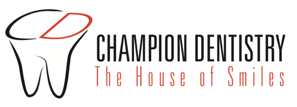6 Tips For Planning Your Vegetarian Diet With Your Oral Health In Mind
6 Tips For Planning Your Vegetarian Diet With Your Oral Health In Mind
Are you considering making the switch to a vegetarian diet? If so, you're not alone – many people are making the switch for various reasons, including environmental and health concerns. But if you're like most people, you may wonder how a vegetarian diet impacts your oral health. Here are eight tips to help you plan your vegetarian diet with your oral health in mind:
1. Ensure You're Getting Enough Vitamin B-12:
Vitamin B-12 is an essential nutrient that helps keep your mouth healthy and aids in producing new cells. While it's typically found in animal products, you can also get Vitamin B-12 from fortified foods such as breakfast cereals and plant milk.
2. Increase Your Intake of Fruits and Vegetables:
Eating plenty of fruits and vegetables can help protect your teeth from decay. Fruits and vegetables are high in fiber, which helps stimulate saliva production to help remove food particles from your mouth. Additionally, many fruits and vegetables contain minerals such as calcium, phosphorus, and magnesium that help keep your teeth strong.
3. Choose Whole Grains Over Refined Grains:
Eating whole grains such as quinoa, oats, and brown rice can help promote good oral health as they are high in fiber which helps to reduce plaque buildup on your teeth. Refined grains such as white bread and pasta should be avoided as they can contribute to tooth decay.
4. Choose Healthy Sources of Protein:
It's important to remember that protein is an essential nutrient for your overall health and that vegetarian sources such as beans, lentils, nuts, and seeds can provide adequate amounts of protein without adding animal products.
5. Incorporate Fermented Foods Into Your Diet:
Fermented foods such as yogurt, kimchi, and sauerkraut are packed with probiotics which can help keep your whole body healthy – including your mouth. Probiotics have been shown to reduce inflammation, promote healing and even improve the balance of bacteria in the mouth.
6. Consider Taking a Multivitamin:
If you're feeling like you're not getting enough of certain nutrients from the foods you eat, consider taking a multivitamin. A multivitamin can help ensure that your body gets all the essential vitamins and minerals needed to keep your mouth healthy. As always, consult with your doctor before beginning any new supplement regime.
Even if you're following a vegetarian diet, it's still essential to visit the dentist regularly for professional cleanings and checkups. That is especially important if you have a history of oral health problems, so keep up with your appointments with Champion Dentistry Today! By following these tips, you can ensure that you're getting all of the essential nutrients from your vegetarian diet while also taking care of your teeth and gums. Happy eating!

